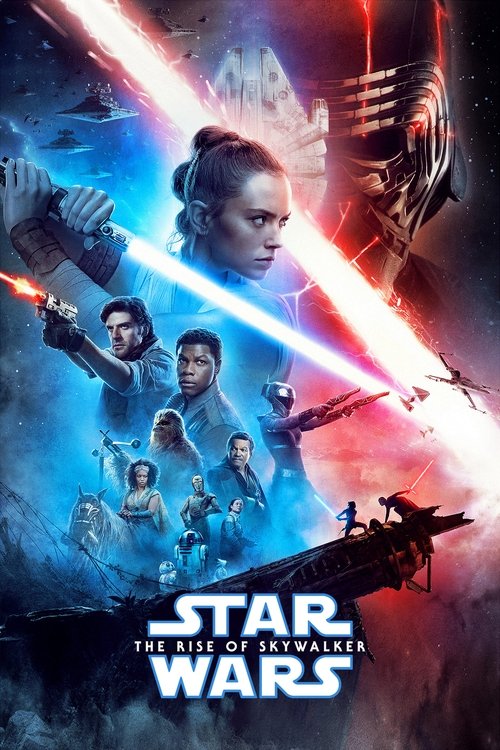
2019
Ad Astra
Science Fiction, Drama
7.0
User Score
7097 Votes
Status
Released
Language
en
Budget
$87.500.000
Production
New Regency Productions, MadRiver Pictures, Plan B Entertainment, RT Features, Bona Film Group, TSG Entertainment, Keep Your Head Productions, 20th Century Fox, Regency Enterprises
Overview
The near future, a time when both hope and hardships drive humanity to look to the stars and beyond. While a mysterious phenomenon menaces to destroy life on planet Earth, astronaut Roy McBride undertakes a mission across the immensity of space and its many perils to uncover the truth about a lost expedition that decades before boldly faced emptiness and silence in search of the unknown.
Review

maketheSWITCH
8.0
‘Ad Astra’ is about as art house as Hollywood cinema gets; disguising a metaphysical drama as an action-packed sci-fi adventure is a clever move for James Gray. While not perfect, it’s consistently entertaining whilst offering an introspective investigation on how parents influence their children. While a journey to the outer realms of our solar system, ‘Ad Astra’ is also an exploration of the human heart.
- Charlie David Page
Read Charlie's full article...
https://www.maketheswitch.com.au/article/review-ad-astra-a-luscious-and-meticulous-space-drama
Read More msbreviews
8.0
If you enjoy reading my Spoiler-Free reviews, please follow my blog :)
I love sci-fi space movies, especially when these depict the cosmos in such a visually stunning manner as Ad Astra does. It’s one of those films where the visuals elevate whatever narrative is being told. If you don’t get goosebumps or get excited with the opening sequence of this movie, then it might not be the film you’re looking for. From the quiet but powerful sound design to the impressive cinematography, James Gray delivers a visually captivating story with an outstanding protagonist. Brad Pitt is definitely getting tons of nominations this awards season (let’s not forget his amazing role in Once Upon a Time in Hollywood).
His subtle yet incredibly emotional performance shows an astonishing range. He carries the whole screenplay in his shoulders, and I don’t mind that at all. There’s a lot of narration, and here’s where I transition to the most divisive aspect of the movie: it’s a slow-burn. Now, there’s no problem with a film being deliberately slow. In fact, some of my favorite movies of all-time aren’t fast-paced. They cherish their story and make the audience feel interested in what they’re experiencing. Ad Astra isn’t an action flick or a comedy, it’s a character-driven drama, so most of the runtime is devoted to developing Roy.
That said, don’t go in with expectations of feeling entertained all the time. Some moments aren’t supposed to excite you or leave you jaw-dropped. Some sequences are just meant to make you feel immersed by the environment, be lost in space (IMAX is the mandatory way of watching this feature). Don’t expect the film to make an 80-day trip to some planet end in two cuts and 20 seconds. Gray purposefully establishes a slow pace. Obviously, general audiences don’t usually enjoy this type of flicks, but if you’re able to manage your expectations realistically, you’re one step closer to not feel bored throughout the runtime.
The first act is the one that captures everyone’s attention. It doesn’t waste time on Earth, it goes through what’s happening pretty quickly, and it possesses 90% of the heavy action (including one of the best opening sequences of the year). Sound has a significant impact on how Gray films his sequences, and it’s unbelievable how well-shot the chasing scenes on the Moon are. Scientifically speaking, this is no Interstellar where you simply have to accept some mind-blowing yet unjustified stuff. Ad Astra doesn’t have a single scene where one might think “this completely takes me out of the movie, I can’t accept that this is possible in some fictional future”. This is a huge compliment to a space film containing several launches, lunar bases, and (very) long space journeys.
However, the remaining two acts focus intensely on Pitt’s character, slowing down the main plot. Like I wrote above, there’s a lot of development through Roy’s thoughts. Extensive narration is almost always an issue, even when the narrator is Brad Pitt. Some monologues do indeed develop the character or explain what he’s feeling, but some tend to fall into the philosophical side that doesn’t always carry a meaningful or interesting message. Using everyday language, sometimes it’s a bit boring… Additionally, the ending might be a letdown for a lot of people. Tommy Lee Jones (H. Clifford McBride) doesn’t have a lot of screentime, and I can’t really delve into details about his storyline, but his character’s relationship with Roy doesn’t exactly serve as a fantastic payoff.
Max Richter’s score is one of 2019’s best, and I hope it gets recognized by every award show. It definitely helps the experience to be more enthralling. The lack of sound in space is also powerful in its own way. Beautifully-edited, but with a continuously slow pace that doesn’t change from the moment the second act begins. However, the story of Ad Astra is vastly superior to, for example, Gray’s The Lost City of Z, which I genuinely disliked. This space adventure is visually more exciting, its story is more engaging, and its protagonist is more compelling than everything else in Gray’s previous installment. Finally, it’s one of those movies that watching at a film theater (mainly IMAX) or at home, makes a massive difference. You’ll never feel as entertained or captivated at home, so make sure to check this one at the best possible screen near you.
All in all, Ad Astra is yet another display case for Brad Pitt’s chances at winning an Oscar. With a subtle yet powerful performance, Pitt carries the whole story to safe harbor with tremendous help from the eyegasmic visuals. Technically, it’s one of 2019’s closest movies to being perfect. Very well-shot, well-edited, with an immersive score, and gorgeous cinematography. However, it’s a slow-burn that doesn’t always work as such. Narration is the go-to method to develop Pitt’s character, and while it works most of the time, it slows down the main plot, becoming a tad boring during a few moments. The ending isn’t the impactful payoff that the film needed, and the incredible supporting cast is under-utilized. In the end, it’s still a great movie and one that should be seen at the biggest and best screen possible, so go see it for yourself!
Rating: B+
Read More 



